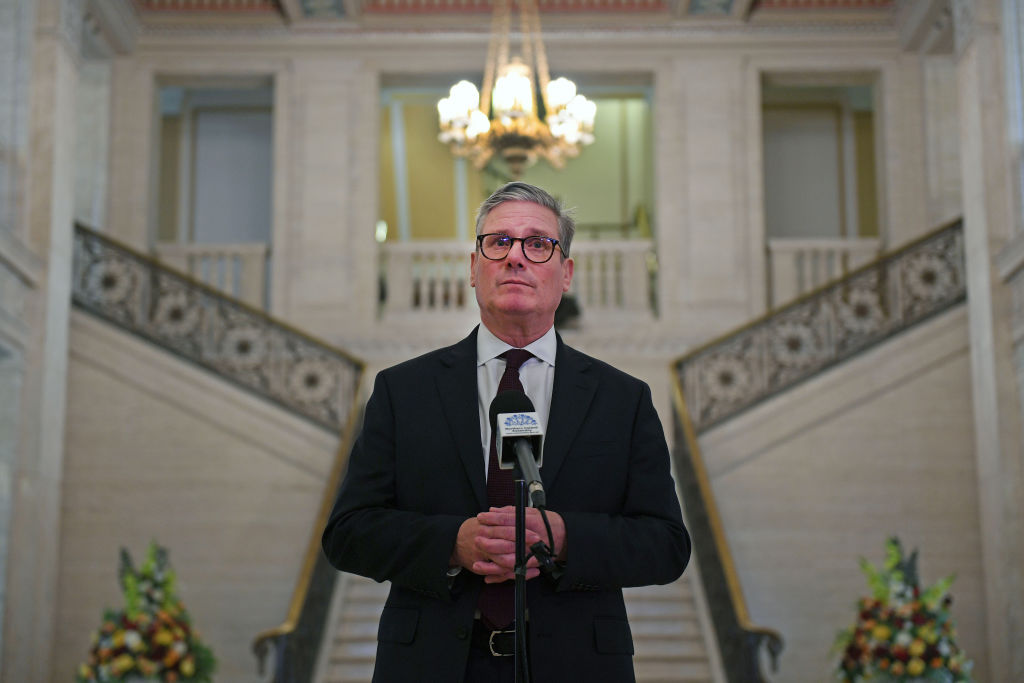At the end of last week, Foreign Secretary David Lammy announced that British funding for the United Nations Relief and Works Agency (UNRWA) would resume. As a result, £21 million is to be released immediately to help finance agency efforts in Gaza and the West Bank.
The previous government, alongside 15 other countries, suspended funding to UNRWA in January, after allegations by Israel that agency staff were involved in the 7 October attacks. While one internal investigation remains ongoing, another already-published review found Israel had not even submitted evidence for such claims. For some, those allegations by the Israeli government are merely the latest episode in a campaign stretching back years to not only undermine the agency, but dismantle it.
Regardless of motives, until last week only the UK and US had not restored funding to the agency, leaving them as “shameful outliers” according to Human Rights Watch. Now, however, Washington — which has banned any funding until next March at the earliest — stands alone.
Besides the implications for UNRWA, and those who depend on its work, Lammy’s announcement was extraordinarily significant. This was because it was a rare moment where London and Washington diverged on foreign policy, all the more surprising because of Starmer’s instinctive Atlanticism. After all, this is the man who initially rejected calls for a ceasefire last year, and who told his MPs to abstain on an SNP motion calling for one. At the time he backed an amendment which merely criticised Israel for its conduct in Gaza — with the whips office making clear to every frontbencher that voting with the SNP would mean the sack.
Among those who defied orders was Jess Phillips — her decision to resign from the Shadow front bench likely proving the difference in keeping her seat of Birmingham Yardley earlier this month. Yet even then, a majority of more than 10,000 was reduced to less than 700 — with Workers Party candidate Jody McIntyre finishing second. Starmer’s clumsy handling of the situation was due to a long-held rule of thumb for the Labour Right: don’t say anything new until the Americans give you permission.
While Phillips was run close, Jonathan Ashworth lost in Leicester South and Khalid Mahmood succumbed in Birmingham Perry Barr. Meanwhile, Heather Iqbal, a former SpAd to Rachel Reeves, was defeated by another pro-Gaza independent in Dewsbury and Batley. Most important of all was the near-miss of Wes Streeting: the crown prince of the Labour Right came within 530 votes of losing to Leanne Mohammed in Ilford North. The common theme was Gaza.
It is this, a cynic might say, which explains Labour’s extraordinary alacrity in refunding UNWRA. It would also illuminate why Lammy — even before the election — stated that a Labour government would recognise Palestine even if that meant bypassing counterparts across the Atlantic. More recently, Defence Secretary John Healey promised the party would apply international law “without fear or favour” in reference to the conflict in Gaza.
Given the International Criminal Court could issue arrest warrants for Benjamin Netanyahu and Yoav Gallant within weeks, that is a bold statement to make. It is particularly pertinent given Washington is applying pressure for the new government to continue a legal challenge that was started under Rishi Sunak against the ICC. On Gaza at least, Britain is on the brink of breaking free from the strictures of Washington’s foreign policy.
Following the general election, Labour has become aware of its unique vulnerability on this issue, especially among the party’s base of Left-wing voters, the young, ethnic minorities and city-dwellers. With the Greens now second in dozens of places, that is a dynamic Starmer’s campaigning guru Morgan McSweeney will want to stifle.
Labour’s position comes with its own political risks. Responding to the news, the Board of Deputies persisted with unevidenced claims advanced by Israel, while calling for UNRWA to ultimately be dissolved. Elsewhere, StandWithUsUK, a charity which claims to support Israel and fight against antisemitism, stood “firmly against the decision”. Stephen Pollard, a former editor of the Jewish Chronicle, retweeted a journalist claiming to “feel gaslit on an industrial scale by this”. Labour’s decision will be unpopular among many pro-Israel voices and organisations which Starmer has spent much time trying to court.
But politicians who wish to be re-elected must appeal to certain constituencies. On Gaza it is simply impossible for Labour to give unquestioning support to Israel, even if the party hierarchy wanted to, given that three-quarters of the public have consistently backed a ceasefire. It is also no longer viable to outsource foreign policy decisions to the United States when domestic sentiment is so strong.
Green and independent gains earlier this month, and the possibility of similar triumphs in any future election, may well be the catalyst for shifts in British foreign policy that few thought previously possible. As with Brexit, it is ultimately the electorate — not NGOs, lobbyists or consultants — who shape the contours of political reality.











Join the discussion
Join like minded readers that support our journalism by becoming a paid subscriber
To join the discussion in the comments, become a paid subscriber.
Join like minded readers that support our journalism, read unlimited articles and enjoy other subscriber-only benefits.
Subscribe